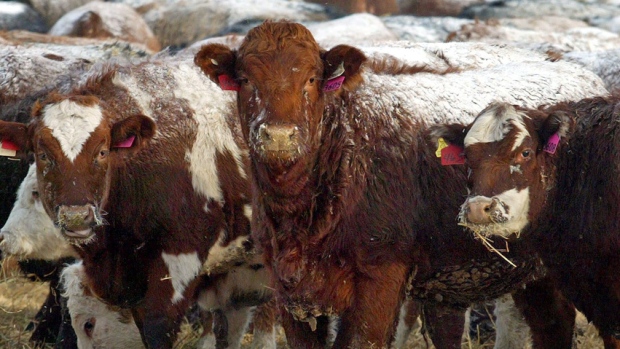Latest extreme cold warnings another hit for B.C. farmers facing brunt of climate change impacts

British Columbia’s farmers are trying their best to cope as record-breaking cold and snowfall affect their livelihood after a year spent bearing the brunt of natural disasters in the province
Environment Canada issued extreme weather warnings for most of British Columbia on Tuesday, saying the province’s historic cold snap will likely continue until the end of the week.
The warnings come at the end of a tumultuous year for the province, which saw deadly heat waves and the third-worst wildfire season on record in the summer. Most recently, devastating floods led to widespread damage to infrastructure and crops.
The series of climate disasters has already affected the province’s farm output in myriad ways — from fruit crops “cooking” on the branch during the heat wave to wildfire smoke tainting wine vintages. Now, the latest cold snap is adding even more uncertainty for farmers in the province, according to Stan Vander Waal, president of the B.C. Agriculture Council.
“The challenges we see as farmers today is dealing with the unknowns. How do you compensate for these extreme conditions?“
“More and more … the challenges we see as farmers today is dealing with the unknowns,” he said. “How do you compensate for these extreme conditions?”
He’s particularly concerned about those areas of B.C. that recently saw flooding — especially the low-lying Sumas Prairie area east of Abbotsford, which was devastated by floods.
Crops that were under a lot of standing water are at risk of “frost kill,” where frigid temperatures destroy moisture-laden berries and plants, he said, adding that frost kill “will not reveal itself, unfortunately, until the very spring … when it gets to the actual fruiting time.”
Vander Waal said that customers are likely to see higher prices on food products due to ongoing supply-chain issues exacerbated by the floods. He also thinks that the record-low temperatures will lead to “much higher” gas and electricity bills for those who use greenhouses.
The extreme cold also poses challenges for dairy producers and ranchers, Abbotsford dairy farmer D.R. Vaandrager said. He didn’t lose any animals to this year’s floods, but he did lose one cow to the heat.
2021 has taken a huge toll on him, his family and his cows, Vaandranger said. “Everything we’ve tried to do this year has been a struggle with the weather.”












